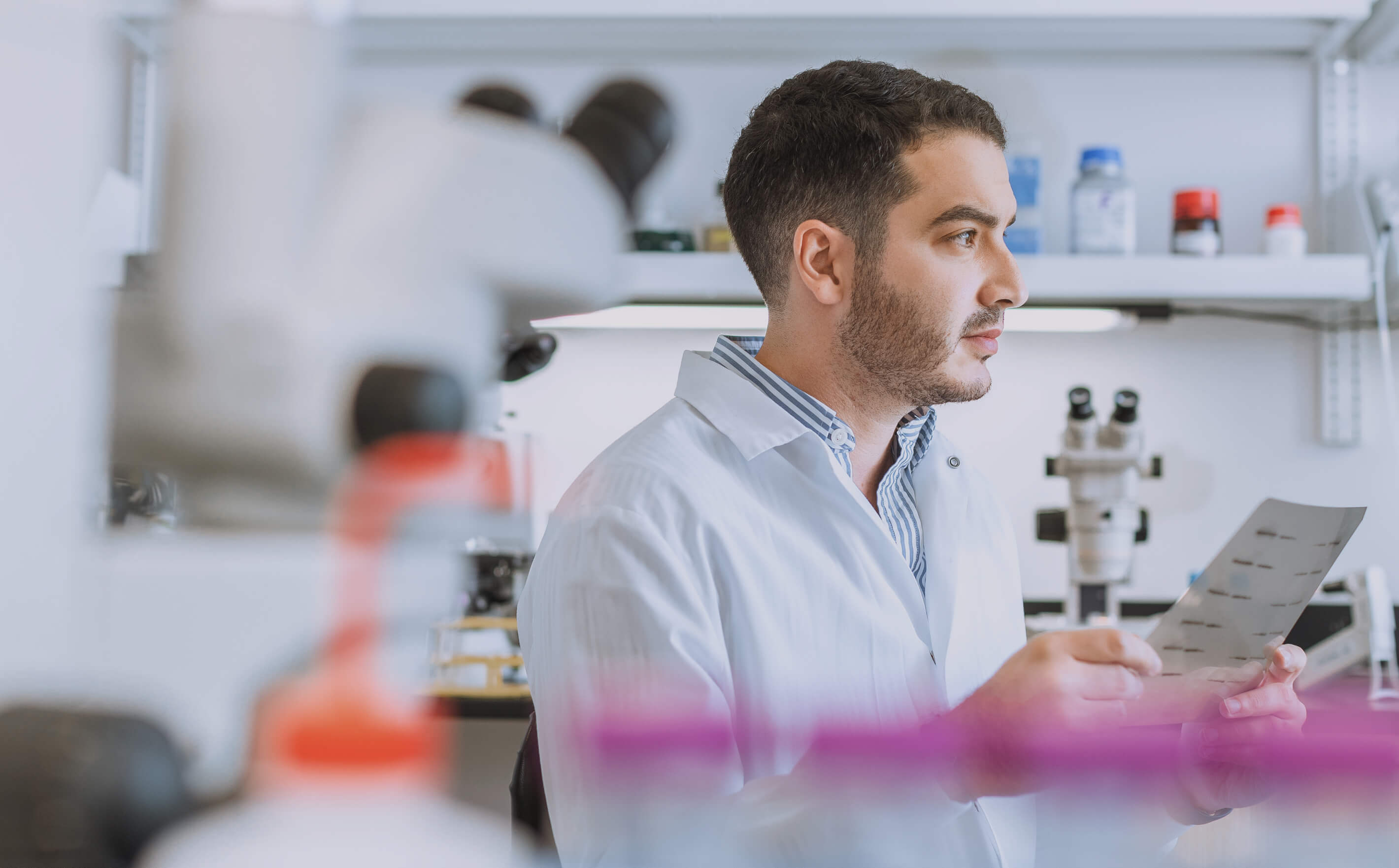
Postdoctoral Training
Postdoctoral training in aging research
An opportunity to put yourself at the forefront of the field.
Program Overview
At the Buck Institute, you will find a place to thrive through daily collaboration with the top scientists in the field. We understand that postdoctoral researchers are at the forefront of the scientific advancement of the aging research field, and our mission is to provide them with a holistic training experience that enables them to realize their full potential. Postdoctoral training at the Buck Institute is rooted in cutting-edge research, access to top-notch technical cores, and the cultivation of professional and leadership skills in core competencies. The postdoctoral training at the Buck Institute aims to facilitate a seamless transition into a rewarding and successful career in the scientific community.
For postdoctoral training opportunities at the Buck Institute, please visit our Careers page. For any questions, please contact our Postdoctoral Office by emailing Alyssa West at awest@buckinstitute.org.
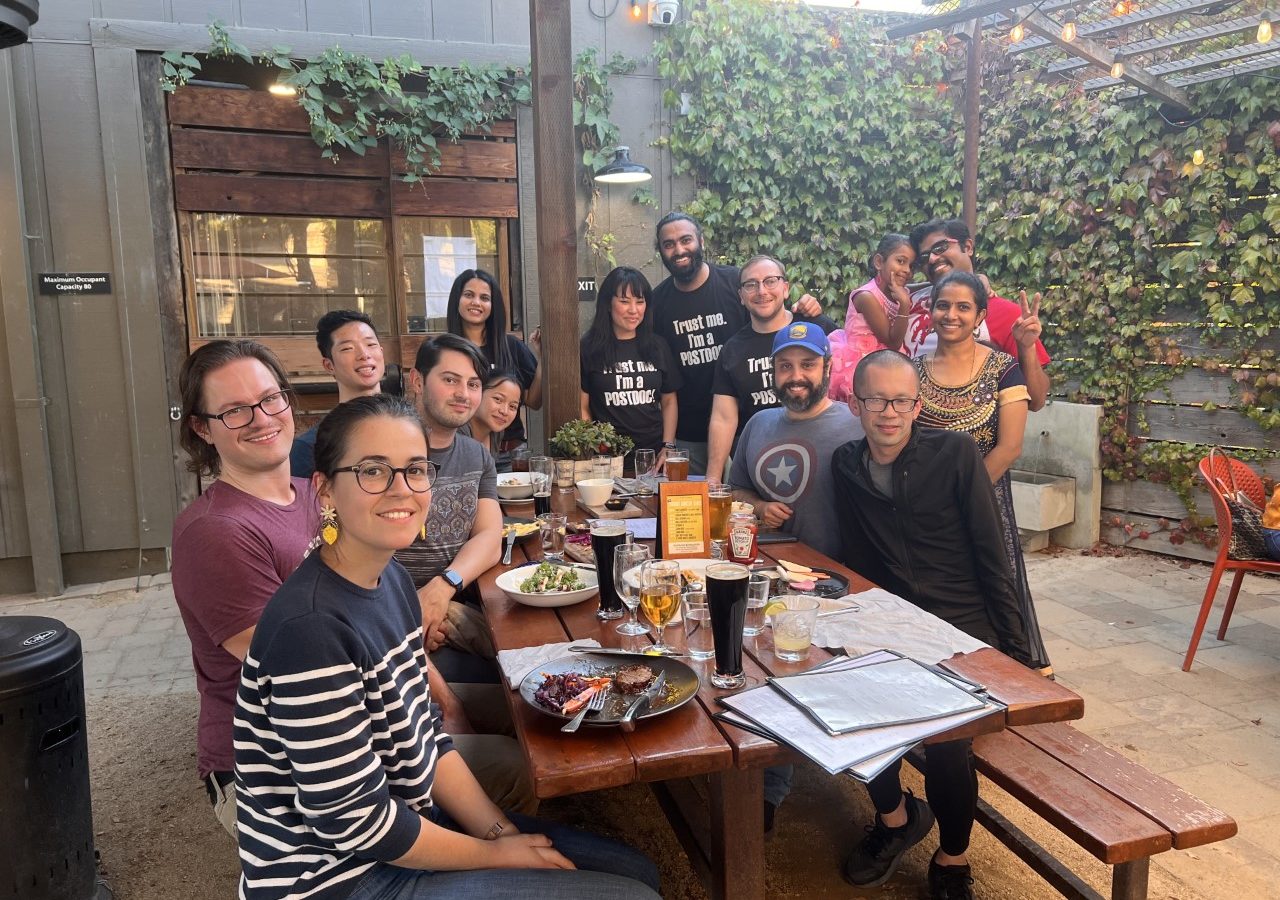
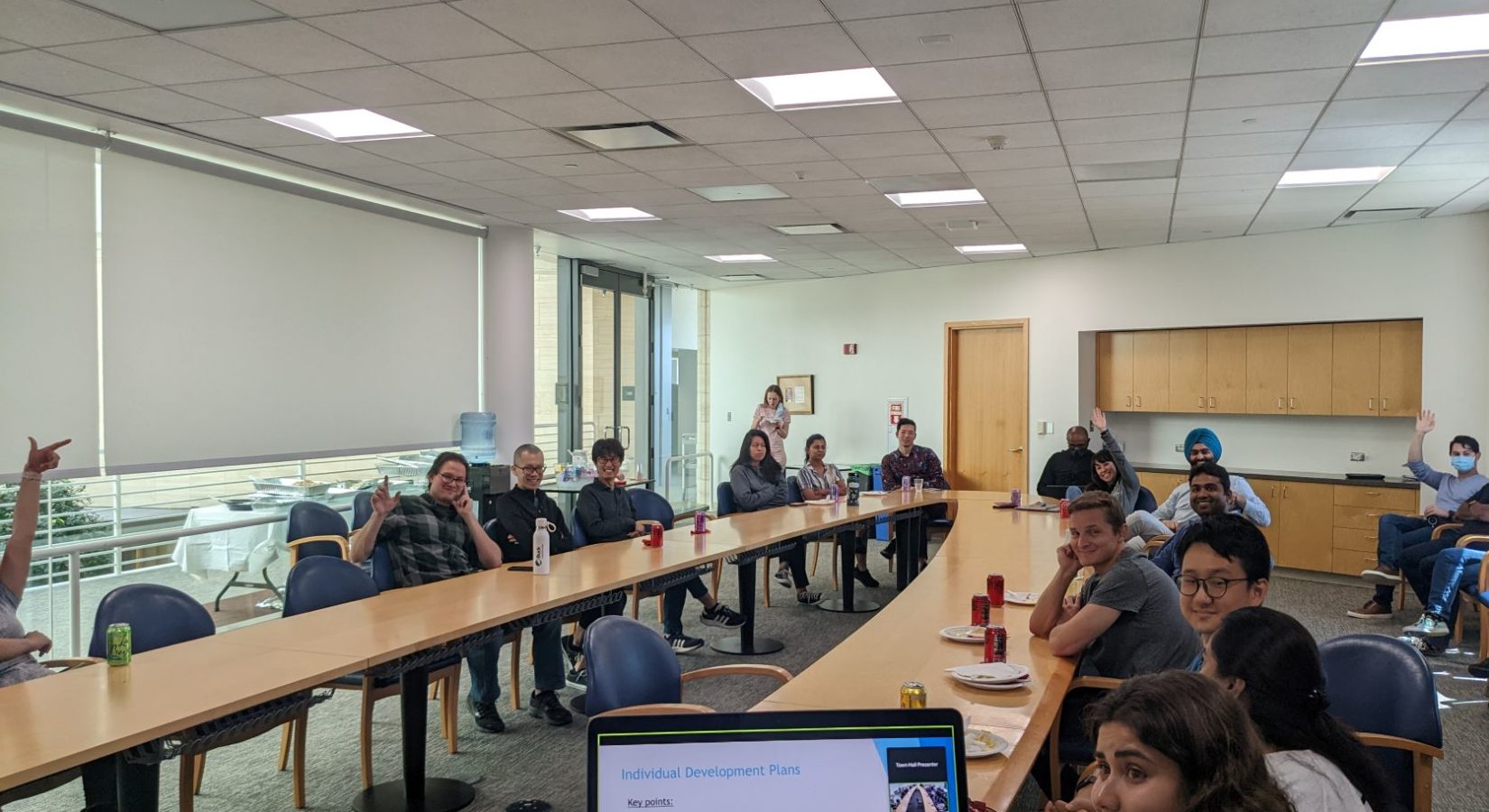
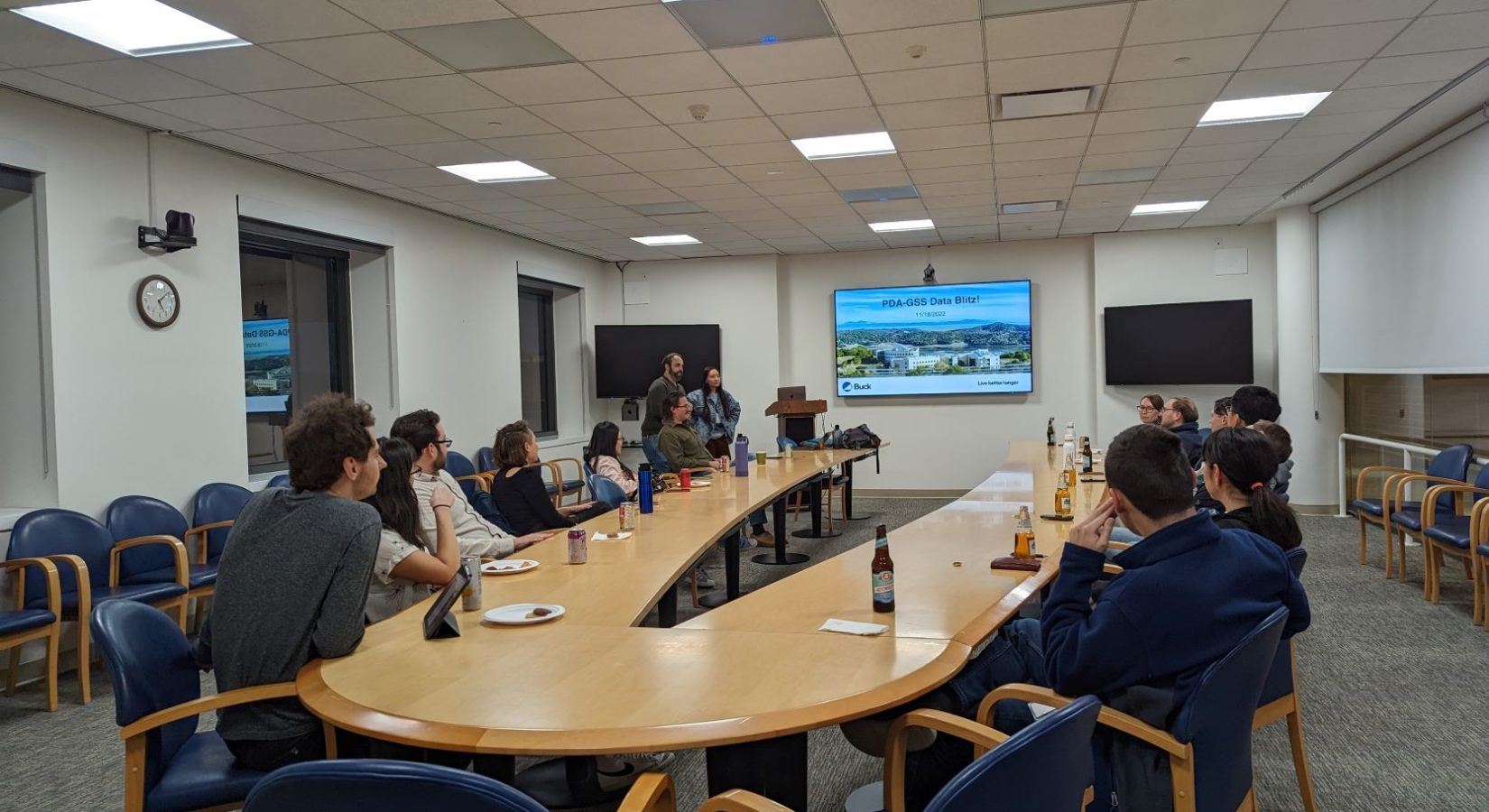
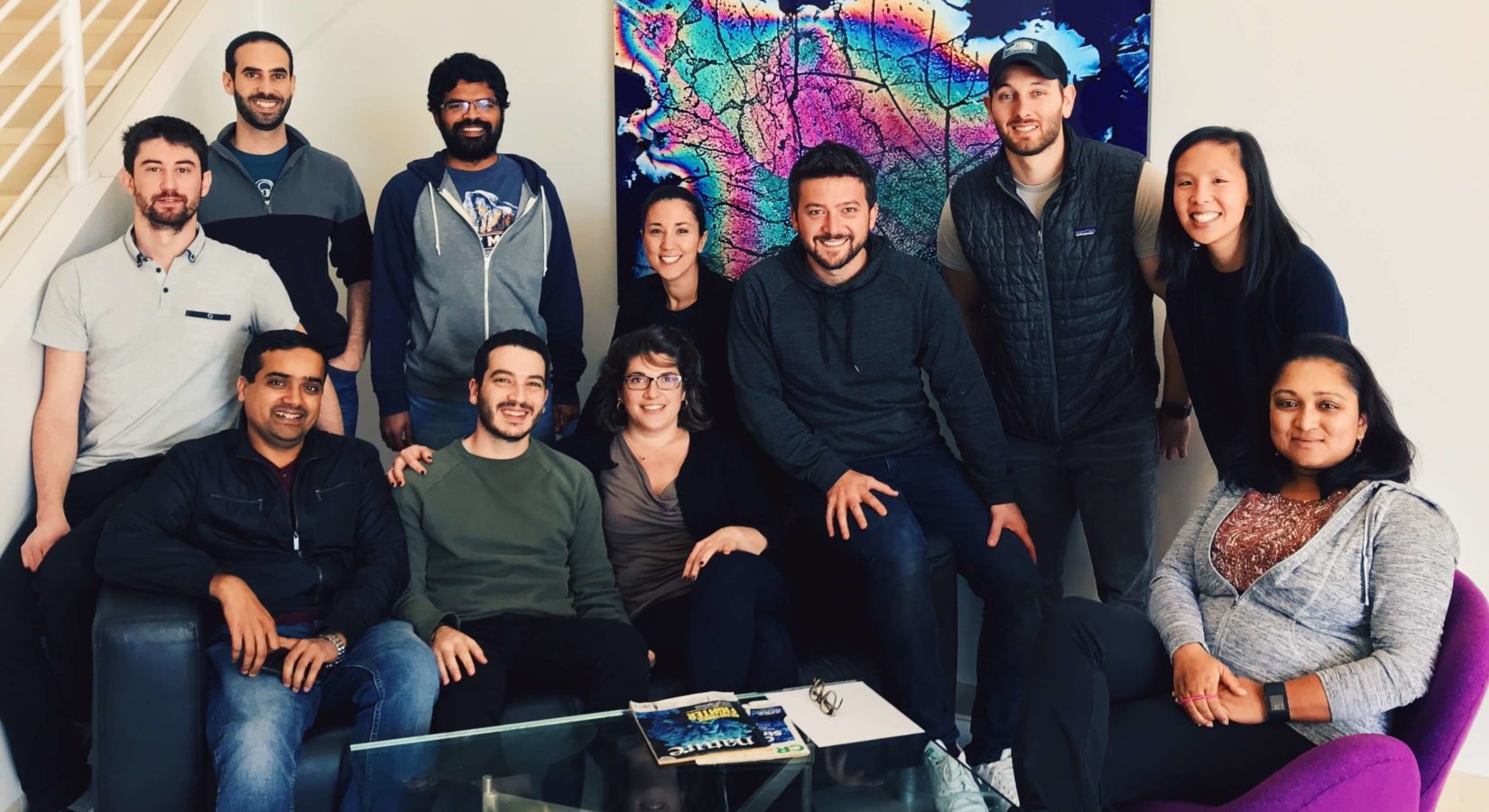
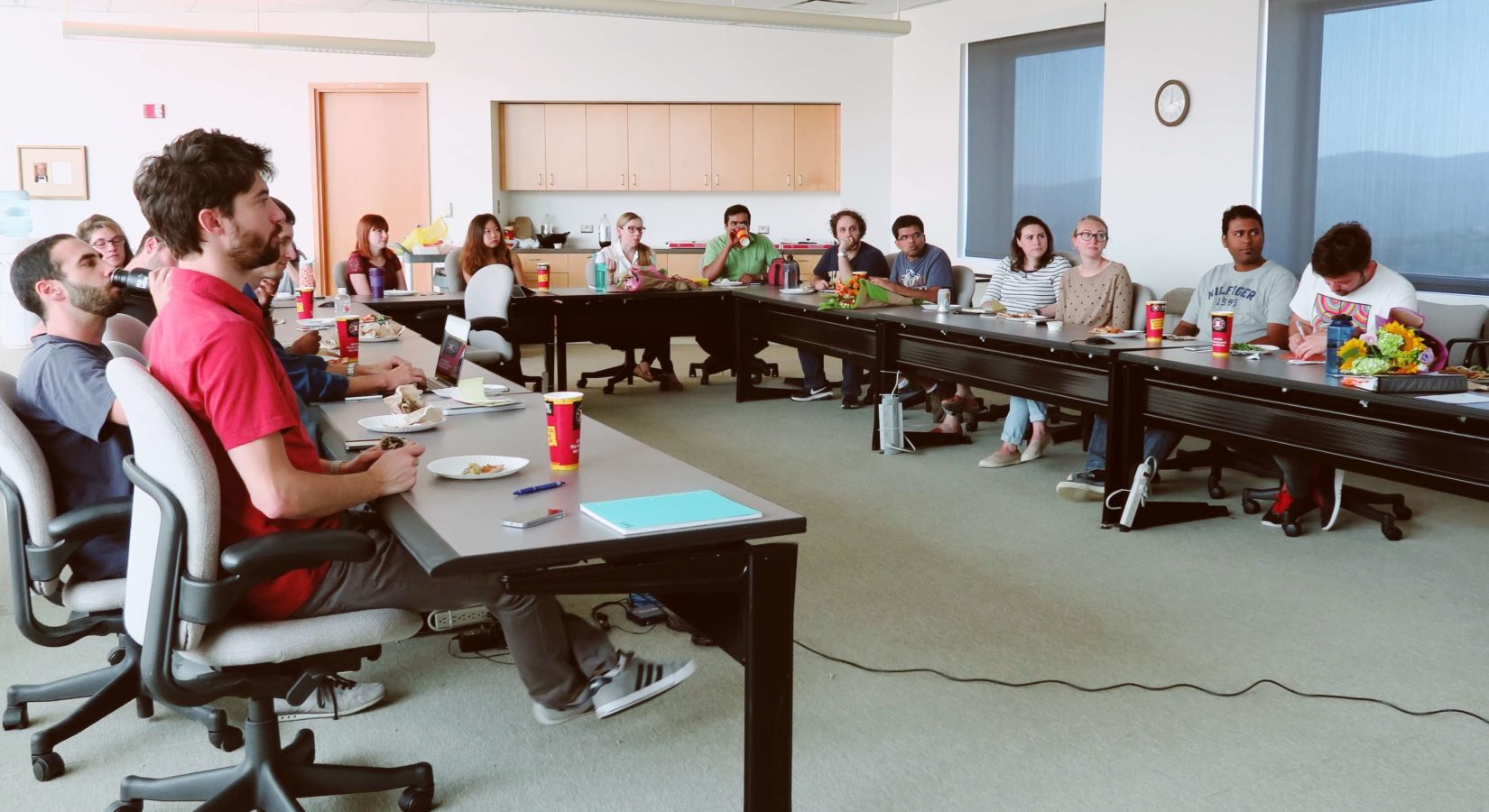
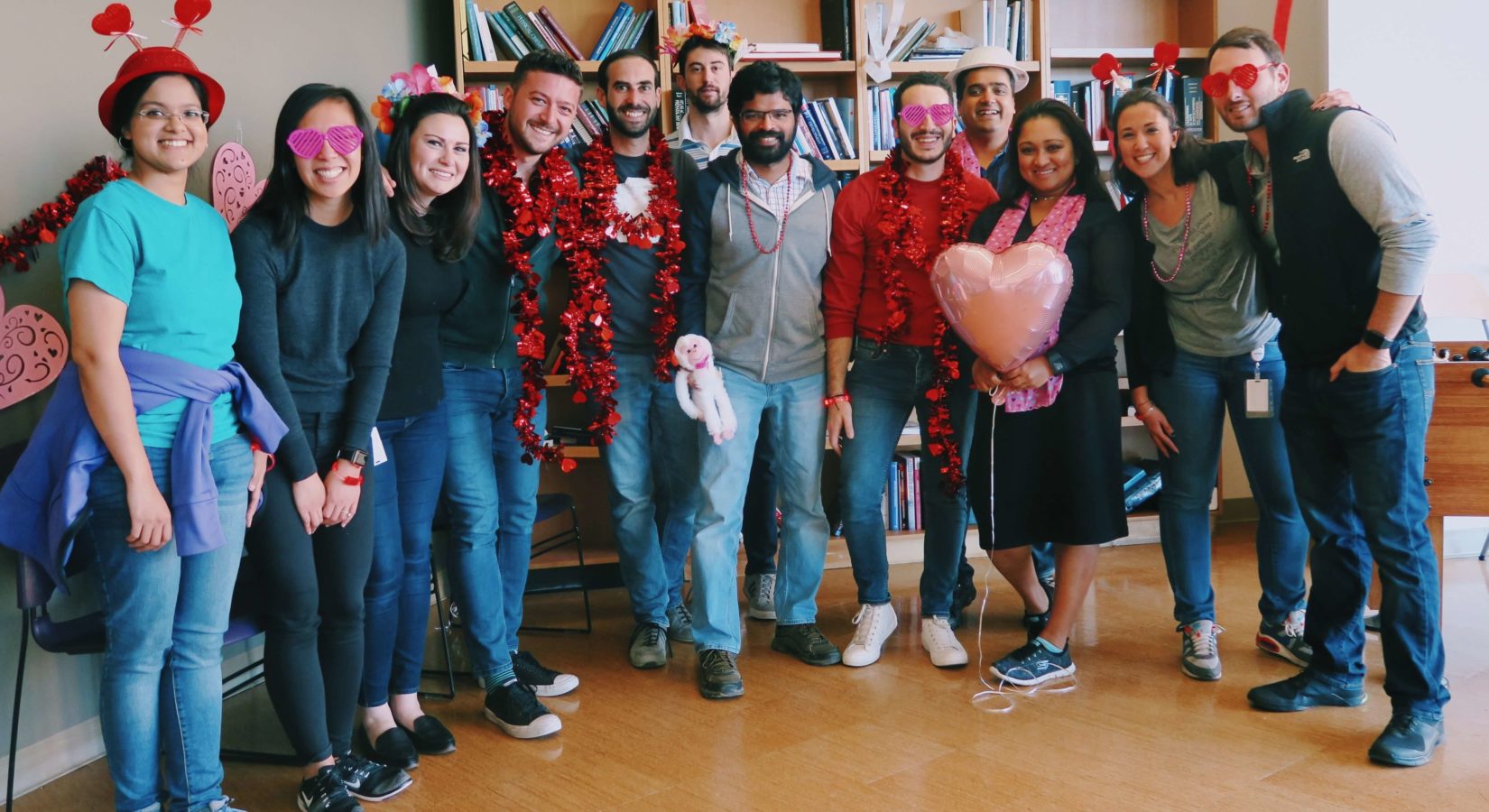
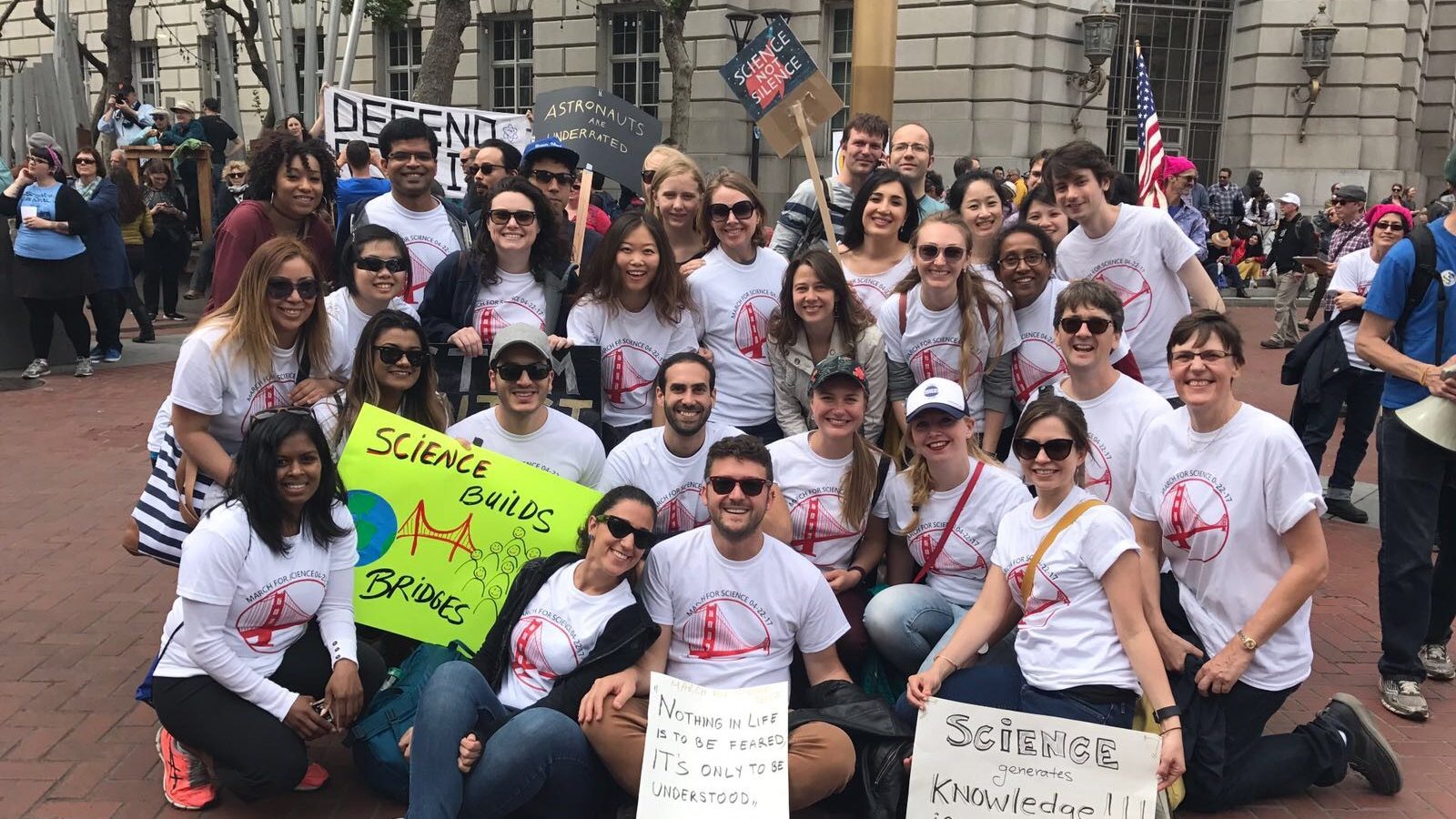
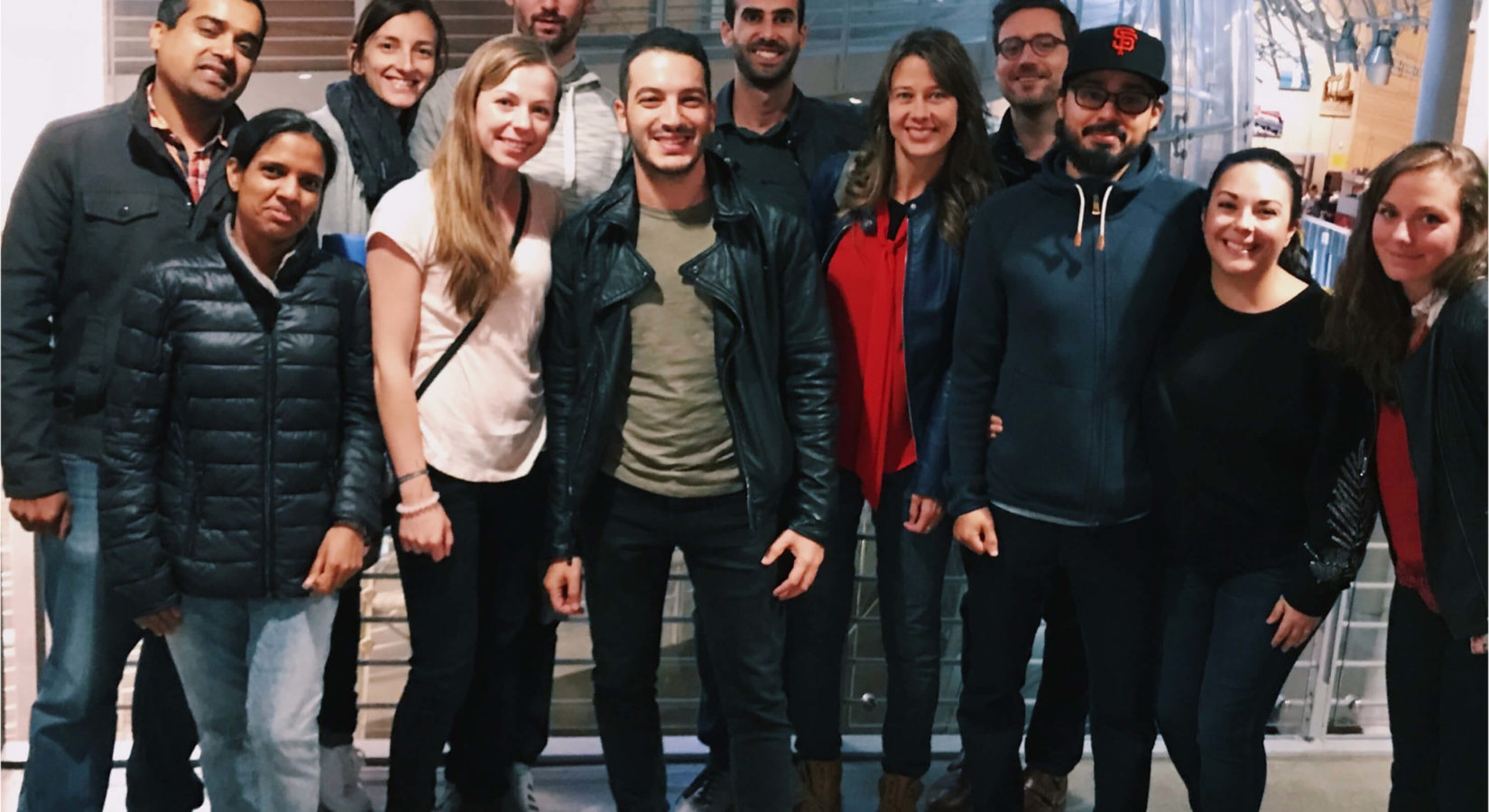
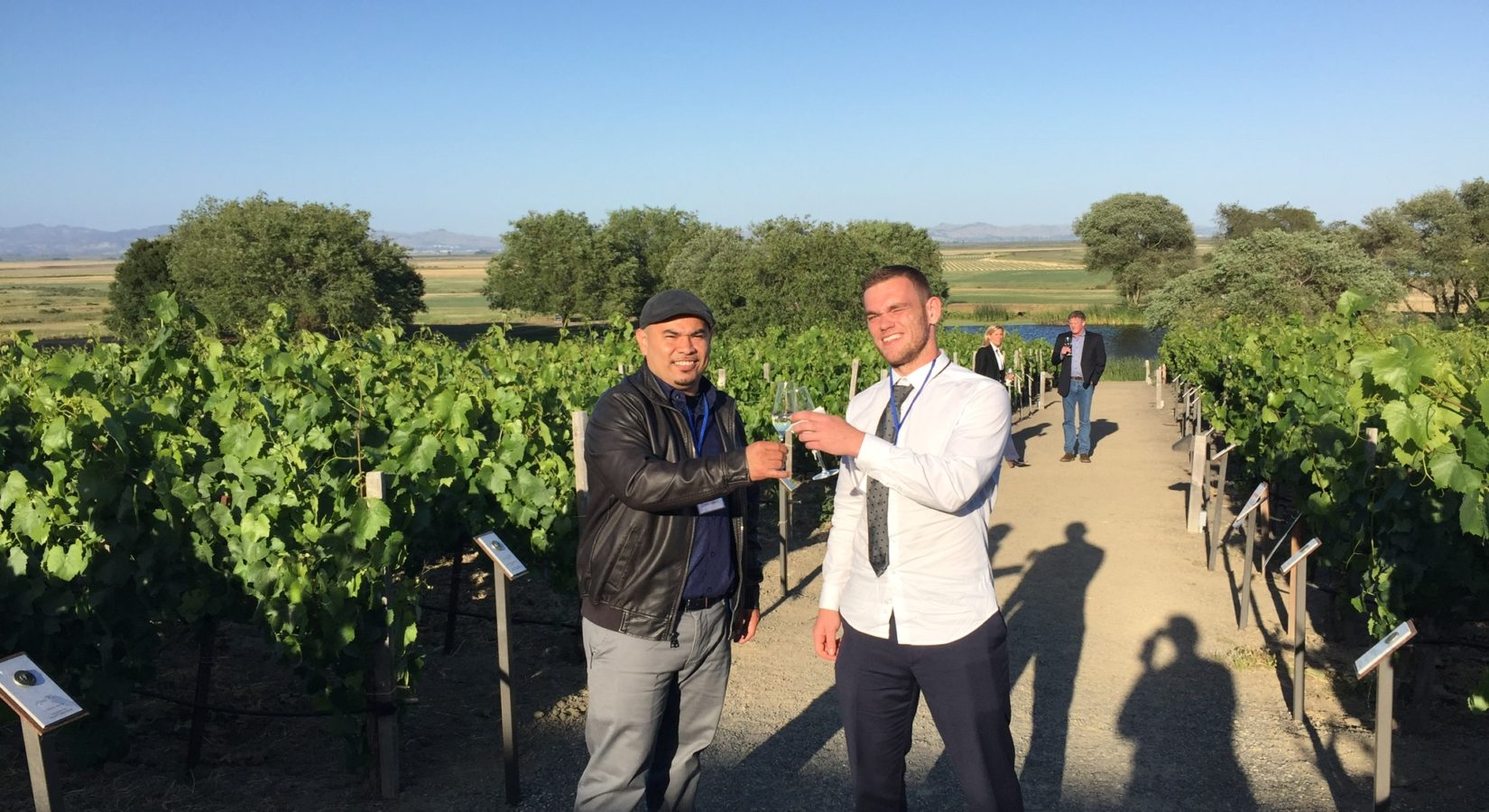


Fellowships
There are three programs that help provide funding for Buck postdocs and their projects.
The Glenn Foundation for Medical Research partners with the Buck Institute to provide project-based Research Training Fellowships. Projects are chosen for funding by a Faculty steering committee. . Glenn Fellows work under the supervision of a faculty mentor and receive a stipend (based on NIH recommended levels), training, professional development, and mentorship during their appointment, which lasts for up to three years.
The Buck Institute administers an NIH-sponsored postdoctoral research training program in basic aging research and age-related disease. The program provides postdoctoral fellows with stipends to work in any of the laboratories at the Buck Institute, and selected laboratories at the Lawrence Berkeley National Laboratory, Stanford University and the University of California in Berkeley.
The Wayne and Gladys Valley Foundation Fellowship is an innovative new career-development award that will support ‘rising star’ junior scientists at the Buck Institute in developing their own scientific research program, and preparing them to pursue independent careers in the aging research field.
Glenn Foundation Fellowship
Since its founding in 1965 the Glenn Foundation for Medical Research has supported basic research to better understand the biology that governs normal human aging and its related physiological decline, with the objective of developing interventions that will extend the healthy years of human life. The Buck Institute and the Foundation have partnered to co-fund 8 postdoctoral fellowship projects with the objectives of training and preparing future leading researchers and in discovering the mechanisms of aging and its relationship to the chronic conditions of aging.
The Glenn Medical Foundation co-sponsored the 30th anniversary of the biology of aging research symposium and continues to sponsor the Bay Area Aging Meeting (BAAM) and the Gordon Research Conference on the Biology of Aging
See The Paul F. Glenn Center for Biology of Aging Research page for more details.
NIH Training Grant T32 AG000266
Training in basic research on aging and age-related disease
The current and future increase in the aged population will require extensive research to understand the underlying mechanisms responsible for age-related diseases and aging. It is, therefore, important to train young scientists in modern research disciplines that will promote excellent basic and translational aging research that will enhance the development of novel therapeutics to improve health in the aging population. Understanding the molecular mechanisms responsible for aging and age-related diseases requires knowledge and experience in the design of optimum research strategies and state-of-the-art integrated and interdisciplinary research approaches. This training program provides postdoctoral fellows with advanced research training in modern disciplines, including functional genomics, epigenomics, proteomics, molecular biology, cell biology, bioenergetics, chemical screening, microanatomy and powerful cellular and animal models.
The proposed training for fellows at the Buck Institute for Research on Aging, Lawrence Berkeley National Laboratory, Stanford University and University of California, Berkeley provides unique faculty expertise.
Trainees will gain knowledge in basic aging mechanisms, and age-related diseases, including neurodegenerative diseases, stroke, cancer, cardiovascular disease, metabolic disorders, sarcopenia and others. Trainees will gain skills in critical thinking to evaluate new research findings. In addition, trainees will receive instruction in written and verbal skills to enrich their publications, grant proposals, and oral presentations. Ongoing seminar series, basic science and clinical lectures, well-organized journal clubs, and research meetings will provide up-to-date information and intellectual cross-fertilization.
The primary home of the training program is the Buck Institute for Research on Aging, located in Novato, California. Postdoctoral trainees may work under the primary supervision of any Buck Institute faculty or selected faculty at the Lawrence Berkeley National Laboratory (LBNL), Stanford University or the University of California in Berkeley (UCB). The research will be conducted at the location of the primary preceptor. Please see the list below for eligible preceptors and apply directly to the preceptor.
Applicants should select a preceptor from the list below:
| Name | Title | Affiliation | Email address |
|---|---|---|---|
| Andersen, J | Professor | Buck Institute | jandersen@buckinstitute.org |
| Artandi, S | Professor | Stanford University | sartandi@stanford.edu |
| Benz, C | Professor | Buck Institute | cbenz@buckinstitute.org |
| Blau, H | Professor | Stanford University | hblau2@stanford.edu |
| Brem, R | Associate Professor | Buck Institute | rbrem@buckinstitute.org |
| Brunet, A | Professor | Stanford University | abrunet1@stanford.edu |
| Chang, H | Professor | Stanford University | howchang@stanford.edu |
| Chen, D | Associate Professor | UCB | danicac@berkeley.edu |
| Chua, K | Associate Professor | Stanford University | kfchua@stanford.edu |
| Conboy, I | Associate Professor | UCB | iconboy@berkeley.edu |
| Dillin, A | Professor | UCB | dillin@berkeley.edu |
| Ellerby, L | Professor | Buck Institute | lellerby@buckinstitute.org |
| Frydman, J | Professor | Stanford University | jfrydman@stanford.edu |
| Huang, T | Associate Professor | Stanford University | tthuang@stanford.edu |
| Jagust, W | Professor | UCB | jagust@berkeley.edu |
| Kapahi, P | Professor | Buck Institute | pkapahi@buckinstitute.org |
| Kaufer, D | Professor | UCB | danielak@berkeley.edu |
| Lithgow, G | Professor | Buck Institute | glithgow@buckinstitute.org |
| McMurray, C | Professor | LBNL | ctmcmurray@lbl.gov |
| Melov, S | Professor | Buck Institute | smelov@buckinstitute.org |
| Ramanathan, A | Assistant Professor | Buck Institute | aramanathan@buckinstitute.org |
| Rando, T | Professor | Stanford University | rando@stanford.edu |
| Schaffer, D | Professor | UCB | schaffer@berkeley.edu |
| Schilling, B | Research Associate Professor | Buck Institute | bschilling@buckinstitute.org |
| Tainer, J | Professor | LBNL | jatainer@gmail.com |
| Verdin, E | Professor | Buck Institute | everdin@buckinstitute.org |
| Wyss-Coray, T | Professor | Stanford University | twc@standford.edu |
| Yaswen, P | Professor | LBNL | p_yaswen@lbl.gov |
TO APPLY FOR A POSTDOCTORAL TRAINING SLOT
Individuals wishing to apply for a position on this training grant should contact a preceptor on the list — send the preceptor a CV, cover letter, and a list of three references. Either the preceptor or the trainee may select a second preceptor for joint training. The primary preceptor will then submit an application to the Training Program.
SUCCESSFUL CANDIDATES WILL BE CHOSEN ON THE BASIS OF THE FOLLOWING CRITERIA:
- Quality as determined by publications, awards and recommendations, commitment to a career in basic or translational aging and/or age-related disease research, and relevance of the training project to aging or age-related disease.
- Collaborative projects between one or more preceptors, particularly inter-institutional projects, will be given special consideration.
- As required by NIH, trainees must be US citizens or permanent residents. Please verify.
Valley Foundation Fellowship
for Emerging Young Geroscientists
$3M over 6 years – 6 Fellows
2 Fellows selected for a 2-year fellowship experience
Application for Valley Foundation Fellowship Award – March 2023
The Valley Foundation Fellowship is an innovative new career-development award that will support ‘rising star’ junior scientists at the Buck Institute in developing their own scientific research program, and preparing them to pursue independent careers in the aging research field.
A Valley Foundation Fellowship Award is for two years and enables the following benefits to the awardee:
- Promotion to Research Scientist position upon award of a Valley Foundation Fellowship.
- Allocation of independent research budget: $20,000 per year in direct costs for innovative and impactful scientific research.
- Access to a mentoring committee that meets with the fellowship awardees twice a year assessing progress.
- Financial support to participate in leadership development, grant-writing (including navigating NIH and other funding opportunities), and lab-management training.
The applicant is required to hold a PhD, and to show excellent scientific merit, leadership qualities, and ambitions to secure an independent faculty position in the future, following the Valley Foundation Fellowship Award. Furthermore, the applicant is currently employed at the Buck Institute and is a:
Postdoctoral Researcher with at least three full years of postdoctoral experience at the time of application; or
Research Scientist or Staff Scientist, who is interested in a path to scientific independence.
Moreover, these additional criteria apply:
- The applicant is required to demonstrate a specific/novel impact to the field of aging research, and strong potential to become an independent researcher.
- The applicant should show a strong prior record of scientific productivity, and to exhibit strong potential for leadership qualities in respect to scientific impact, scientific networking, and mentorship capabilities.
- The applicant’s mentor is required to commit to support the candidate on their path to become an independent researcher by endorsing the promotion of the applicant to Research Scientist as part of receiving and implementing the Valley Foundation Fellowship Award. Final promotion decisions will follow institute procedure and will be made by CSO, VP of Academics, and a faculty from the Committee of Appointments and Promotions.
The following documents need to be included as part of the application submission:
- Check list (provided as separate word document)
- NIH Biosketches from applicant and mentor/co-mentor(s)
- The application package, consisting of:
-
- Two-page Candidate Career Development Plan, including planned new scientific skills, vision for future scientific independence and impact, planned activities to develop career skills and mentoring capabilities, and relevance of the award for the future career. The candidate should highlight a clear path to scientific independence.
- Two-page Research Plan (allowing for one extra page of figures and references) demonstrating innovative aging research and/or research on age-related diseases. Impact to the field of aging research should be clearly stated.
- List of suggested members for a mentoring committee with short justification for these members and their anticipated contributions (e.g., mentoring, advice for new skill sets/technologies). Please consider one member to be represented from the Buck Institute leadership (e.g., CEO, CSO, VP Academic Affairs etc.) for additional insights into academic organizations and guidance.
- Short (maximum half a page) diversity statement from the candidate.
- List of reference letter writers including names, affiliation, position/title and email information.
- Two-page Commitment letter from the Mentor/Co-Mentor(s) highlighting prior productivity, scientific excellence, and leadership qualities of the candidate. The mentor letter needs to include a clear statement that upon successful funding of a candidate, the mentor will support internal promotion of the candidate to Research Scientist with the following salary distribution:
-
- For Postdoctoral Researchers who are promoted to Research Scientist the salary will be in accordance with the base salary of $80,000 plus fringe (obtained from the Valley Foundation).
- If the candidate already earns >$80,000 there will be a 5% merit increase on their current salary. In this case, the Valley Foundation will pay $80,000 plus fringe – the difference will be supported by the mentor (the latter should be stated in the mentor letter).
- Three to five reference letters that should be emailed directly to Alyssa West by April 28, 2023 (email: awest@buckinstitute.org), noting the applicant’s name and Valley Foundation in the subject line. Two of the reference letters need to be from an external (non-Buck affiliated) referee.
All application materials should be submitted as one pdf file to Alyssa West (email: awest@buckinstitute.org) by April 28, 2023 – 5 pm PST. Reference Letters need to also be received by April 28, 2023 – 5 pm PST
For any questions, please contact the chair of the Valley Foundation Fellowship Committee (Dr. Birgit Schilling, email: bschilling@buckinstitute.org).
- Five voting members (chair, three Buck Faculty members, one external member)
- Chair: Birgit Schilling, PhD (Professor)
- Members: Malene Hansen, PhD (Professor, Chief Scientific Officer); Gordon Lithgow, PhD (Professor, Vice President for Academic Affairs); Buck Institute Faculty Member (to be determined)
- External Member: Faculty at US academic institution to be determined (will remain anonymous)
- Coordinator: Brian van Weele (Chief Philanthropic Officer), non-voting
- Review process: Each application will be scored by at least three reviewers, and will subsequently be reviewed during a ‘study section’ meeting with all members of the review committee. Together with the coordinator, the final Valley Foundation Fellowship Awardees will be determined.
Note: While this scenario will generally be avoided (as is the case for the 2023 round), in case a mentor of an applicant is a committee member or chair, that mentor will excuse themselves from the evaluation of the applicant. The chair and committee members will serve for to two (max. three) rounds, and thus committee members will cycle. CSO, VP Academic Affairs and Chief Philanthropic Officer will identify new committee members, when needed.
- Launch and call for applications on March 10, 2023
- Call for applications closes on April 28, 2023
- Committee review meeting on May 25/26, 2023
- Contact of two awardees on May 30, 2023
- Announcement of two awardees on June 1, 2023
- Start of two Valley Foundation Fellowships on July 1, 2023
- Next round of applications is expected in the Spring of 2025
Travel Awards
To be announced.
External Fellowships
To be announced.
Buck Community
Working as a postdoctoral researcher at the Buck Institute for Research on Aging in Novato presents a range of compelling perks and advantages. Here, you’ll be at the forefront of cutting-edge research in the field of aging, interacting with top-tier scientists in an interdisciplinary and collaborative environment. Access to state-of-the-art research facilities ensures the quality and impact of your work. Mentorship and guidance from experienced faculty and staff members will nurture your skills and career aspirations.
Situated in the scenic Marin County, the Buck Institute’s tranquil campus offers an inspiring setting for your research endeavors and professional training. A supportive community and social events enhance your overall experience. Additionally, access to research funding opportunities and competitive health and wellness benefits further enrich your professional journey. Most importantly, your work here contributes to impactful research that has the potential to improve the lives of individuals as they age, making your role as a postdoc at the Buck Institute profoundly meaningful and rewarding.
See below for more information related to the postdoctoral community at the Buck Institute.
Buck Postdoc Appreciation
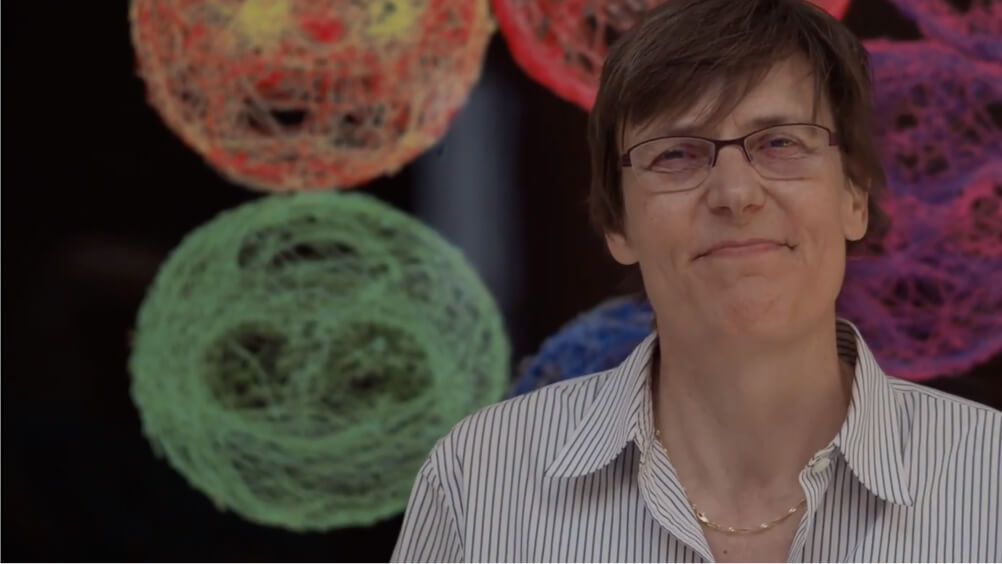
FACULTY
A mission-driven community of investigators
The Buck is a collective of the world’s top scientists in the field of aging who are sharing their methods and expertise to find ways to help everyone lead fuller, healthier lives by ending age-related disease.
Our teamCareers
Come work at Buck!
Living Better Longer Together
Buck Institute for Research on Aging is an equal opportunity employer. Buck Institute seeks candidates whose experience and qualifications will enable them to contribute to our dedication to excellence.
Affinity Groups at Buck
At the Buck Institute, we believe that every person—regardless of gender, race, ethnicity, age, sexual orientation, physical ability, or socioeconomic status—deserves the opportunity to thrive in our community. We also believe that scientific progress is driven by open exchange, collaboration, and the ability of individuals to contribute fully and authentically. Click here to see all the affinity group opportunities available to you at the Buck.
Take a peek inside the Buck or see the Bay Area in the videos below.
